The AI revolution isn’t coming—it’s already here. Whether it’s automating content creation, enhancing customer support, or optimizing business decisions, AI is rewriting the rules of competition. For entrepreneurs, agencies, and digital marketers, this creates a rare window of opportunity: those who move quickly can ride the wave. Those who don’t risk being left behind.
But speed matters. If you’re still stuck in the planning phase or debating whether to build software from scratch, you’ll miss your chance. That’s where white label SaaS platforms come in. They give you a ready-made, brandable solution you can offer to clients as your own—without hiring a dev team or writing a single line of code.
In this post, we’ll explore what white label SaaS is, why it’s such a powerful tool for growth in 2025, and which platforms stand out—especially if you’re looking to build a sustainable business on top of it.
What Is White Label SaaS?
White label SaaS (Software as a Service) is a platform developed by one company that another company can rebrand and sell as their own. It allows businesses to offer powerful digital tools without investing in software development or maintenance. The original provider handles the backend while you handle the customer-facing experience—under your own brand.
This is often confused with private label or custom-built software. Private label software may not allow full rebranding or may offer more limited customization. Custom SaaS, on the other hand, refers to software built from scratch—offering ultimate control but at a far higher cost and timeline. White label SaaS strikes a balance: fast, scalable, and brandable.
Startups, agencies, and marketers benefit especially from white label solutions. They can offer value-added services, launch faster, and maintain a professional appearance—all while focusing on what they do best: growing the business.
Related: What is White Labeling and How Does It Work?
Benefits of Using a White Label SaaS Platform
Now let’s dive into the core benefits of integrating a white label SaaS platform into your business strategy.
Quick deployment
With a white label SaaS, your business can be up and running in days, not months. You don’t need developers or a lengthy product roadmap. Just brand the platform and start onboarding clients.
Brand consistency
White label tools let you customize logos, domains, and even email templates to match your brand. This creates a seamless client experience and reinforces your professional identity.
Reduce development cost
Building SaaS software from scratch can cost tens or hundreds of thousands of dollars. A white label platform eliminates that cost, allowing you to offer high-end solutions without hiring engineers.
Focus on business core offerings
Rather than managing servers and bug fixes, you can focus on delivering services, nurturing leads, and growing your revenue.
Related: White Label vs. Private Label
Top 7 White Label SaaS Platforms to Grow Your Brand in 2025
Now that we’ve covered the advantages, let’s explore the top white label SaaS platforms that can help you achieve these benefits and more in 2025.
1. Ahsuite
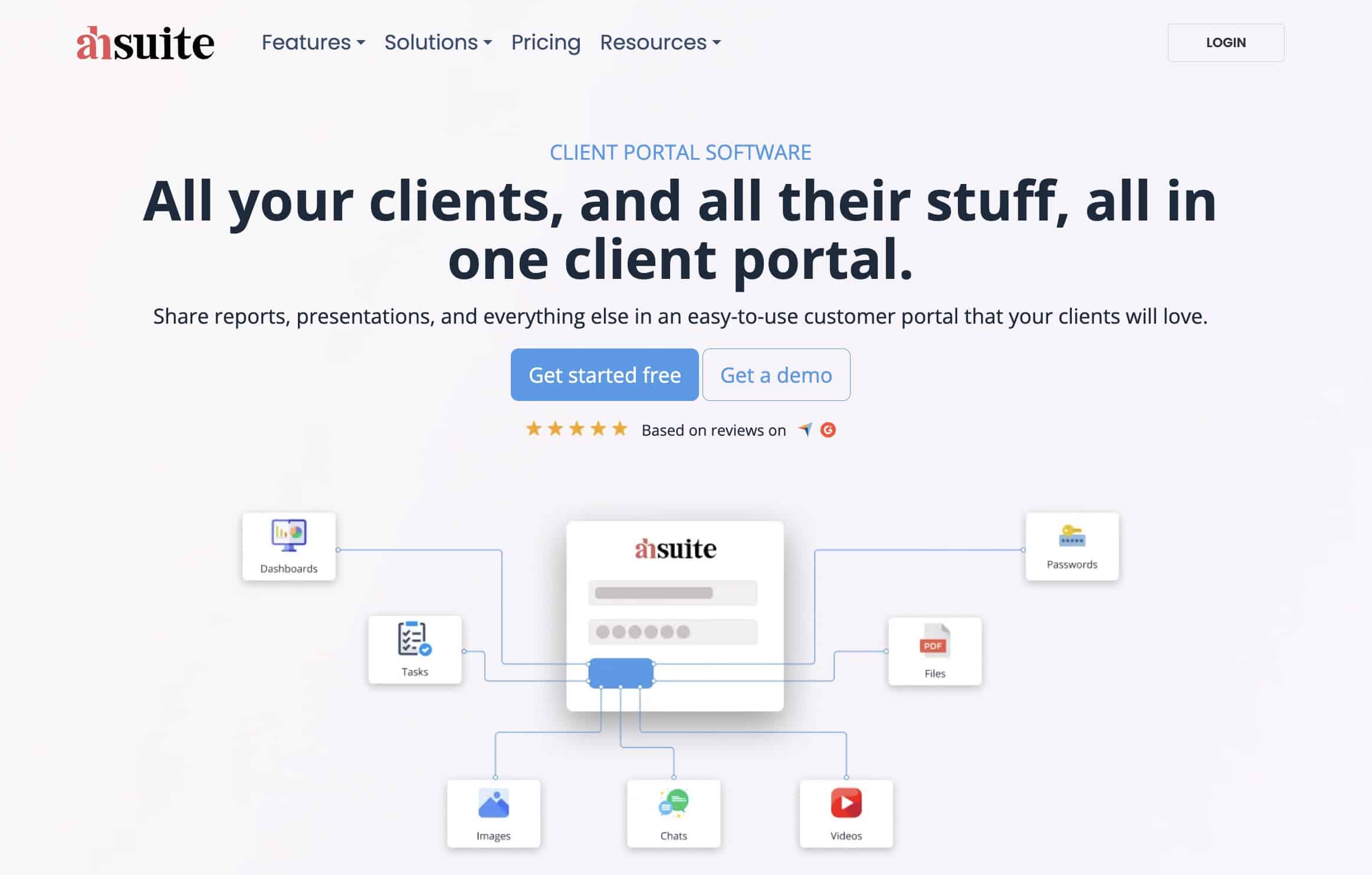
Ahsuite is a comprehensive client portal designed for agencies, freelancers, accountants, and consultants to streamline communication, manage projects, and securely share information. It centralizes dashboards, files, credentials, tasks, and conversations—all in a customizable, white-label environment.
At its core, Ahsuite offers robust task and project management, allowing teams to create recurring tasks, establish dependencies to ensure projects flow in the correct order, and use checklists to break down complex assignments. The platform also includes a work journals feature, providing a dedicated space for internal team members to log progress and maintain a detailed record of their efforts.
The platform prioritizes security with its secure file storage system, which uses AES 256-bit encryption. This allows you to confidently share sensitive files, request documents from clients, and even manage approvals for proofs and contracts. To further enhance security, Ahsuite includes a team password manager, eliminating the need for insecure methods like spreadsheets.
A standout feature is the ability to build password-protected custom pages. Here, you can embed anything from client dashboards and reports to forms, videos, and custom code, creating a truly tailored resource hub for each client.
Branding Options: Custom domain, logo, colors, and email branding. Agency plans support sub-users and full white labeling.
Pricing: Free for up to 10 portals. Paid plans start at $6.50/month (billed yearly), with full white labeling available from $14/month and agency-level tools at $24/month.
2. SocialPilot
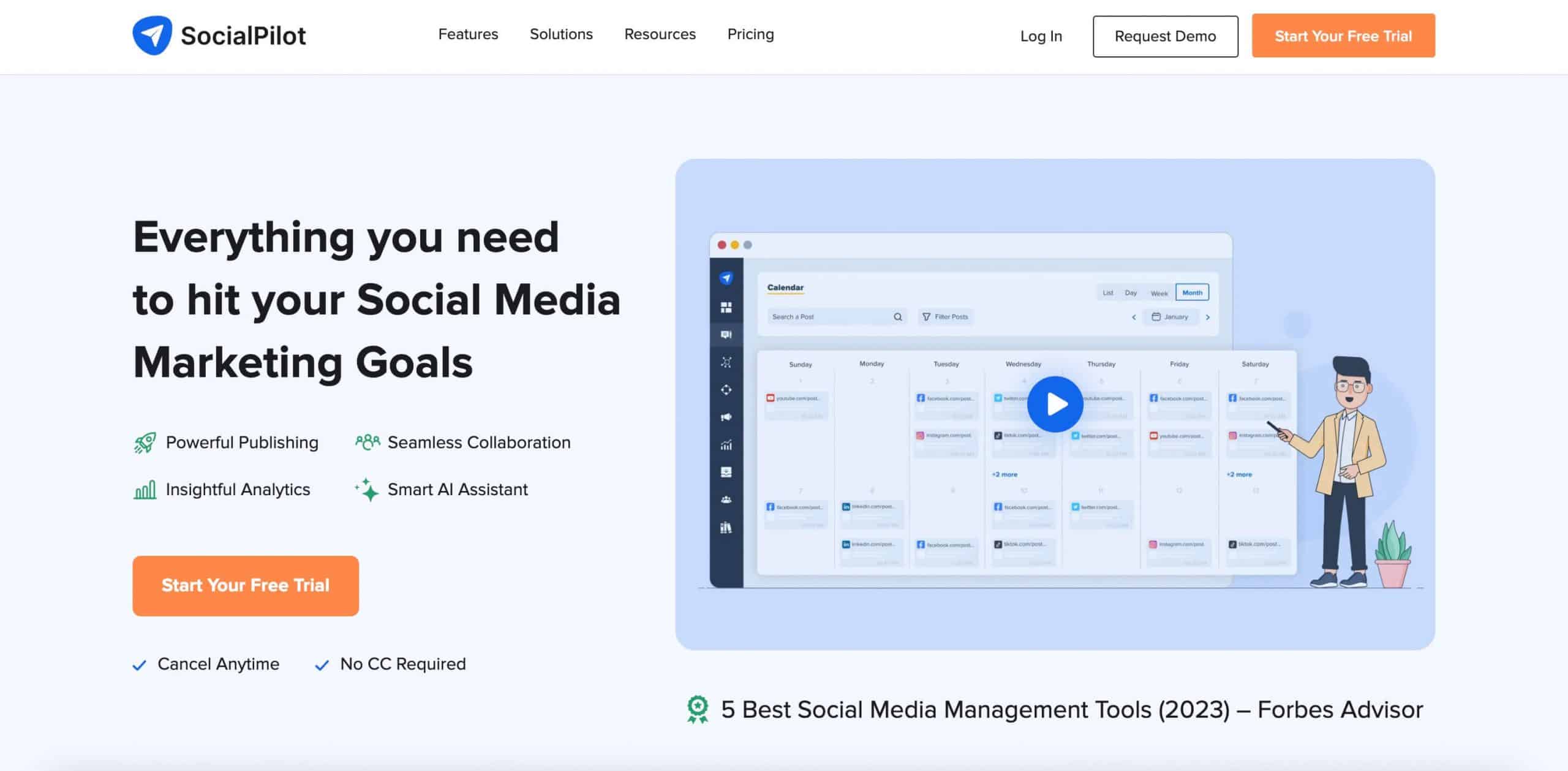
SocialPilot is a full-featured social media management platform for marketing teams. It is designed to simplify the entire process of managing social media for multiple clients.
It simplifies content creation and distribution with a bulk scheduling tool that can queue up to 500 posts at once. To help generate engaging content, it includes an AI content assistant and hashtag generator to spark ideas and improve reach.
For client management, SocialPilot provides a unified social inbox to manage all conversations in one place, along with approval workflows to ensure content is client-approved before going live.
Branding Options: White-labeled reports, custom logos, and client dashboards available on Premium and Ultimate plans.
Pricing: Starts at $30/month. White label support starts with the $85/month plan. Enterprise pricing available for large agencies.
3. SPP (Service Provider Pro)
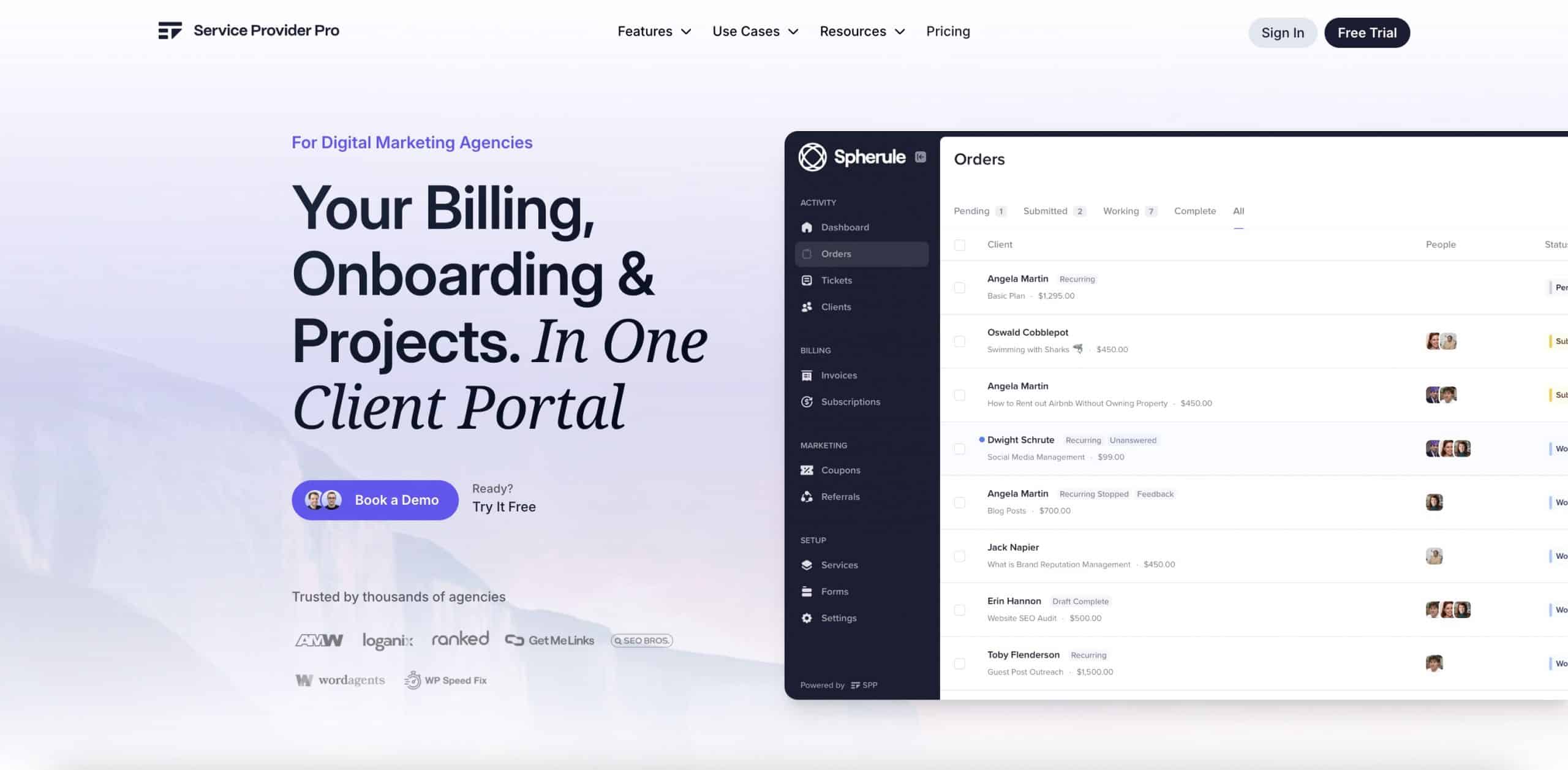
SPP is purpose-built for productized service agencies offering SEO, design, or other recurring services. It handles the complete client lifecycle in one branded portal.
SPP streamlines client intake with custom order and intake forms to gather all necessary project details upfront. It then handles recurring revenue seamlessly with built-in subscription billing.
Once a project is active, teams can track progress and assign tasks, while clients view everything through their own branded portal, creating a professional and transparent experience.
Branding Options: White-label portal with custom domain and language settings. “Powered by SPP” can be removed on higher-tier plans.
Pricing: Plans start at $99/month. Full white labeling requires the $249/month Pro plan or above.
4. Wotnot
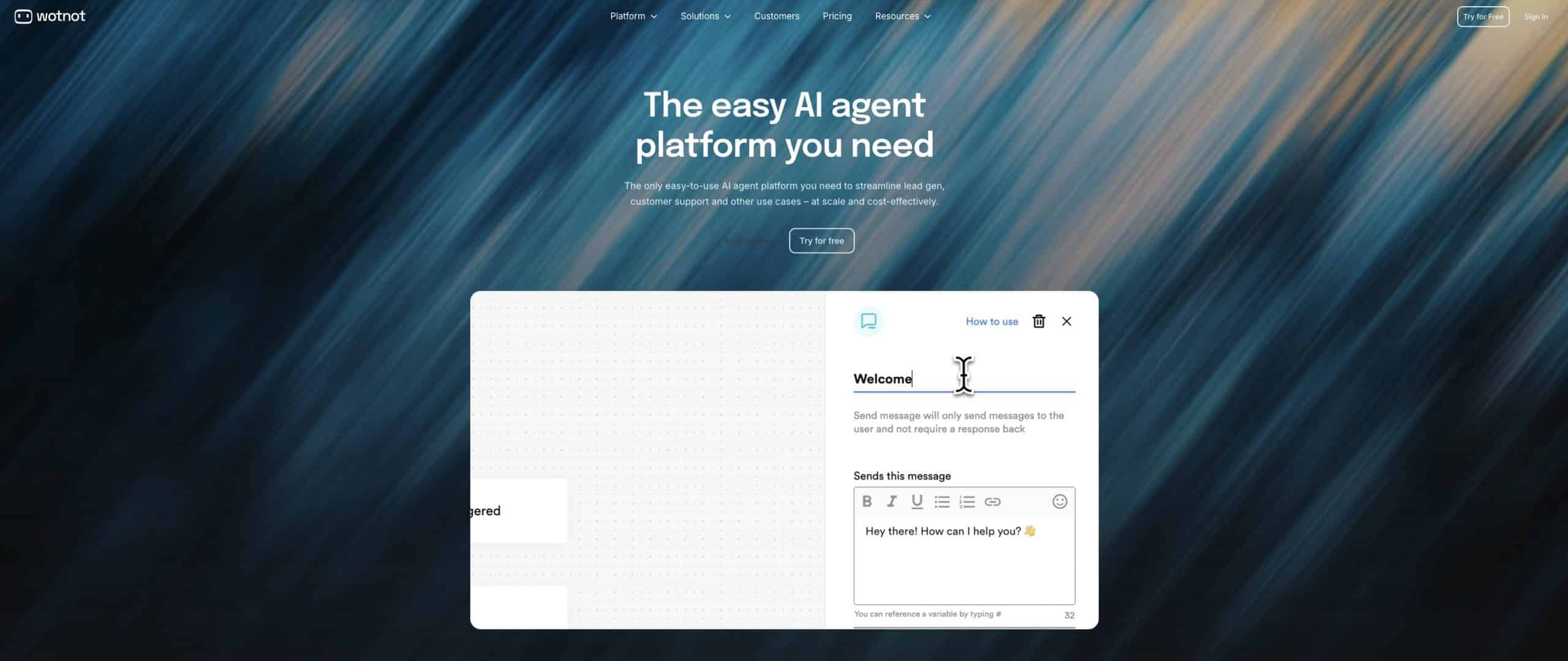
Wotnot is an AI-powered chatbot builder that helps businesses automate support and lead generation, making it ideal for agencies offering conversational AI solutions.
Its no-code chatbot builder allows agencies to create and deploy sophisticated conversational AI for clients without writing a single line of code. These bots can automate lead qualification, book meetings directly into calendars, and provide support in over 80 languages.
When human intervention is needed, Wotnot facilitates a smooth handoff to a live chat agent, ensuring a seamless customer experience that combines the best of automation and personal touch.
Branding Options: White label options begin on the Premium plan, including the ability to hide Wotnot branding.
Pricing: Free plan available. Premium white label plans start at $299/month. Enterprise plans are custom-priced.
5. Vendasta
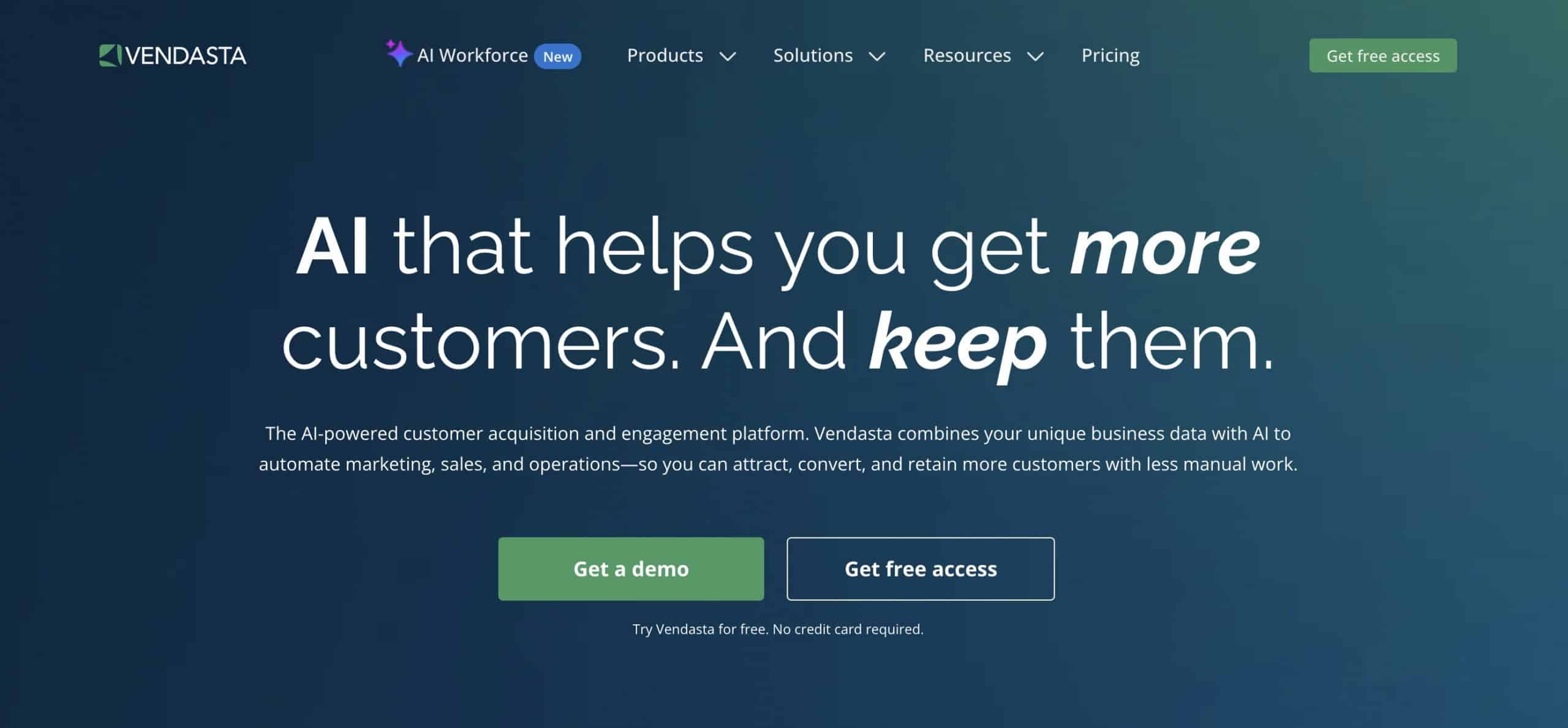
Vendasta is a platform for digital agencies to resell hundreds of white label services—from SEO and CRM to email marketing and reputation management.
Vendasta acts as an all-in-one marketplace where agencies can browse a vast catalog of white-label services—including AI-powered web chat, SEO tools, and reputation management—and resell them under their own brand.
To support this model, the platform provides the necessary infrastructure to manage sales and fulfillment, including a built-in CRM, project and billing management tools, and workflow automation.
Branding Options: Full white labeling across services, reports, portals, and emails.
Pricing: Plans start at ~$99/month, with common tiers at $499 and $999/month. One-time onboarding fees may apply.
6. Weblium
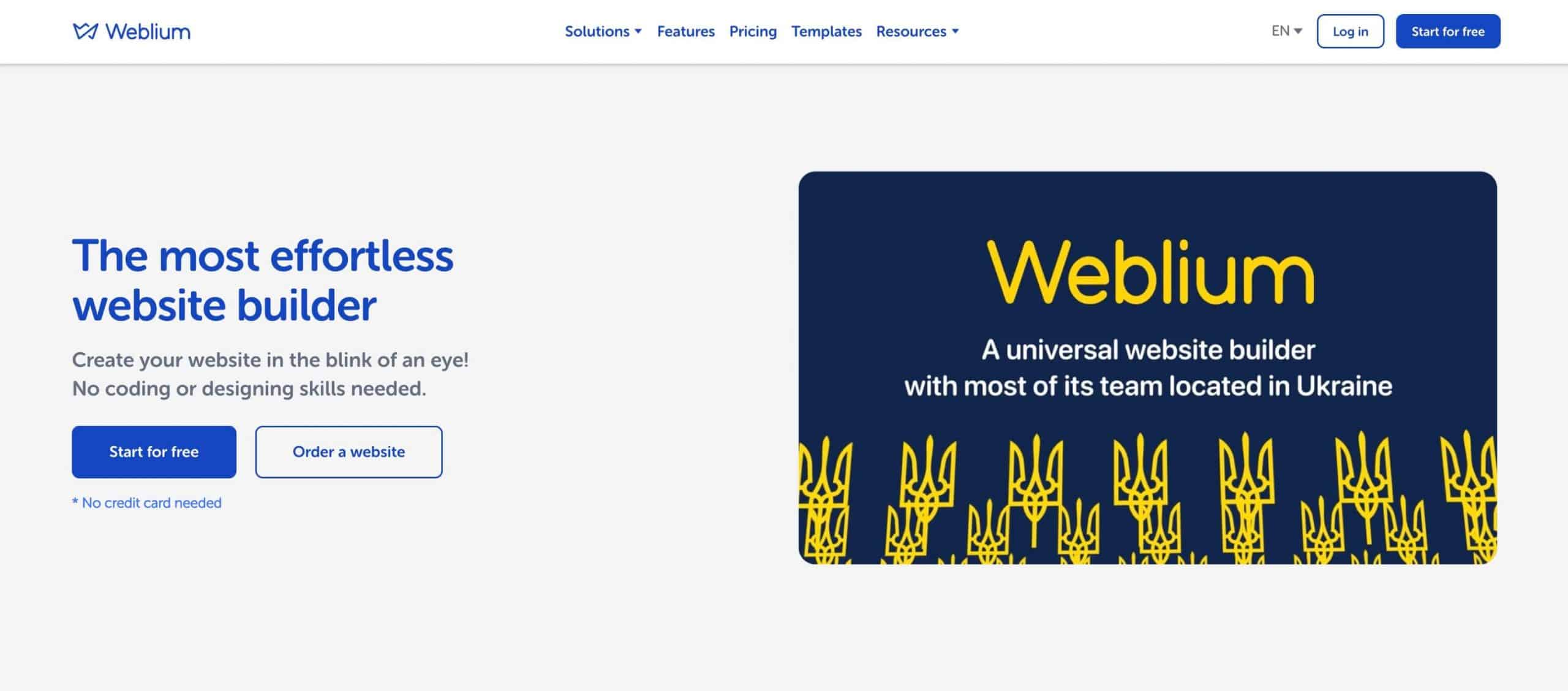
Weblium is a white label website builder with AI design assistance, perfect for agencies building client sites quickly and affordably.
It enables agencies to build professional client sites efficiently using an intuitive drag-and-drop editor enhanced with AI design assistance. Users can start with over 300 templates and blocks to speed up development.
Beyond the builder itself, Weblium includes foundational business tools like a built-in CRM for managing leads, basic SEO tools to help sites get discovered, unlimited storage, and an SSL certificate.
Branding Options: White label and multi-site agency bundles available. Branding can be removed on paid plans.
Pricing: Pro plan starts at $8.25/month (annual). Agency bundles start at $4.12/site/month for 10 sites.
7. GoHighLevel
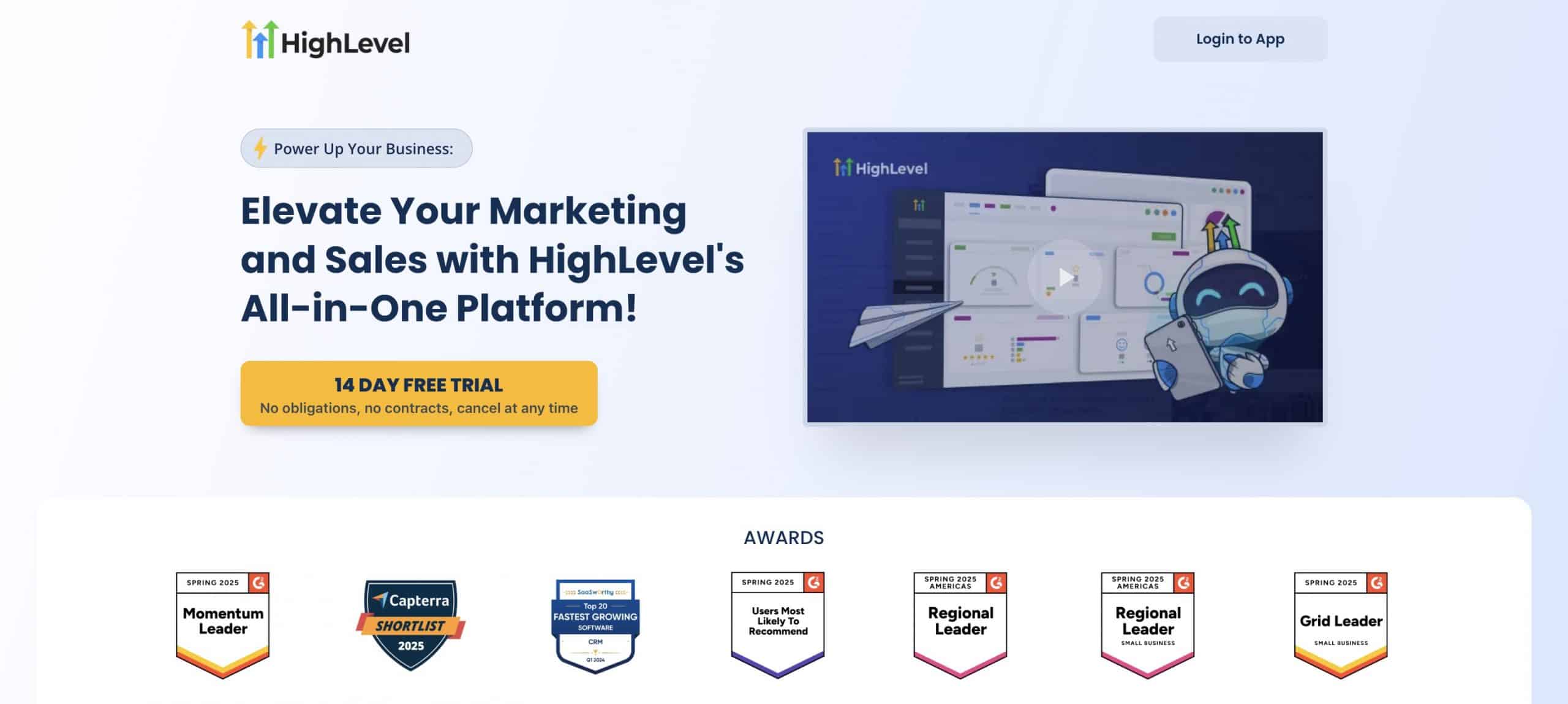
GoHighLevel is a full-stack sales and marketing platform built for agencies, with strong automation and CRM features that can be fully white-labeled.
GoHighLevel consolidates numerous tools into a single system, featuring a powerful CRM and funnel builder to capture and nurture leads, combined with robust marketing automation.
The platform also allows you to manage all client communications, including email, SMS, and call tracking. It includes integrated booking and pipeline management tools to streamline the entire sales process, all delivered through a white-labeled desktop app.
Branding Options: Full white label available on Unlimited plan, including custom domains and branded apps.
Pricing: Starter plan at $97/month. Full white label available from $297/month.
Related: Best White Label Marketing Softwares
How to Pick the Right White Label SaaS Platform
With so many powerful options available, choosing the right white label SaaS platform for your business requires careful consideration of several key factors.
Customization level
Look for platforms that let you fully brand the experience—from domain name to client dashboard design.
Pricing
Evaluating the pricing structure of a white-label SaaS platform goes beyond just the monthly fee. You need to balance your current operational budget with the long-term value and potential for scalability.
Look for platforms that offer transparent pricing models without hidden costs. Some providers offer agency bundles or volume discounts, which can be incredibly beneficial as your client base grows, allowing you to scale profitably.
Consider the cost per client, per feature set, or per user, and how that aligns with your anticipated growth and client acquisition strategy. A platform that offers tiered pricing or customizable plans can also provide flexibility as your business evolves.
Integration capabilities
Modern businesses rely on a complex ecosystem of digital tools, and your white-label SaaS platform should seamlessly integrate with them. Consider the essential tools your clients are already using or are likely to adopt, such as payment gateways (e.g., Stripe, PayPal), analytics platforms (e.g., Google Analytics, Adobe Analytics), customer relationship management (CRM) systems (e.g., Salesforce, HubSpot), marketing automation platforms, and various productivity tools.
Robust API access and pre-built integrations are crucial. The more integrations a platform supports, the more versatile and valuable it becomes to your clients, reducing friction and improving their overall workflow. This also minimizes the need for manual data transfer or workarounds, saving time and resources for both you and your clients.
Customer support
The quality of customer support provided by your white-label SaaS partner can significantly impact your agency’s efficiency and client satisfaction. Access to responsive and knowledgeable support is paramount, especially when you are managing multiple clients with diverse needs.
Look for platforms that offer various support channels (e.g., live chat, email, phone, dedicated account managers) and clear service level agreements (SLAs). Onboarding assistance, training resources, and a comprehensive knowledge base can also make a big difference in ensuring a smooth transition and ongoing successful use of the platform. Proactive support and a partner who understands your agency’s unique challenges can be invaluable.
End-user experience
The end-user experience (UX) is critical for client adoption and long-term retention. Is the platform’s interface intuitive and easy to navigate for your clients? Do they require extensive training or can they pick it up quickly?
A smooth and enjoyable UX minimizes the learning curve and reduces the likelihood of clients abandoning the platform due to frustration. This includes clean design, logical workflows, clear labeling, and responsive performance across various devices.
A positive end-user experience reflects well on your brand and reinforces the value you provide, ultimately contributing to higher client satisfaction and lower churn rates.
Check out Ahsuite
White label SaaS platforms are the modern agency’s secret weapon. They let you offer high-value tools under your own brand, deploy fast, and focus on building relationships—not software. With AI changing the game in 2025, these platforms offer a smart, scalable way to grow your business without the tech overhead.
Ahsuite is a great starting point if you’re offering client-facing services. It’s clean, simple, and white-labeled—plus it’s free for your first 10 client portals. Try Ahsuite today and start building your brand the easy way.
FAQs About White Label SaaS
What is the difference between white label and custom-built software?
White label software is built by someone else and rebranded as your own. Custom-built software is developed from scratch specifically for your needs—more flexible, but slower and more expensive.
Can I sell a white label SaaS as my own?
Yes. That’s the point! You can fully brand it as your own and sell it to clients—depending on the licensing terms of the provider.
Are white label SaaS platforms scalable?
Absolutely. Most are built with agencies in mind and offer plans that grow with your business—from freelancers to enterprise-level needs.
